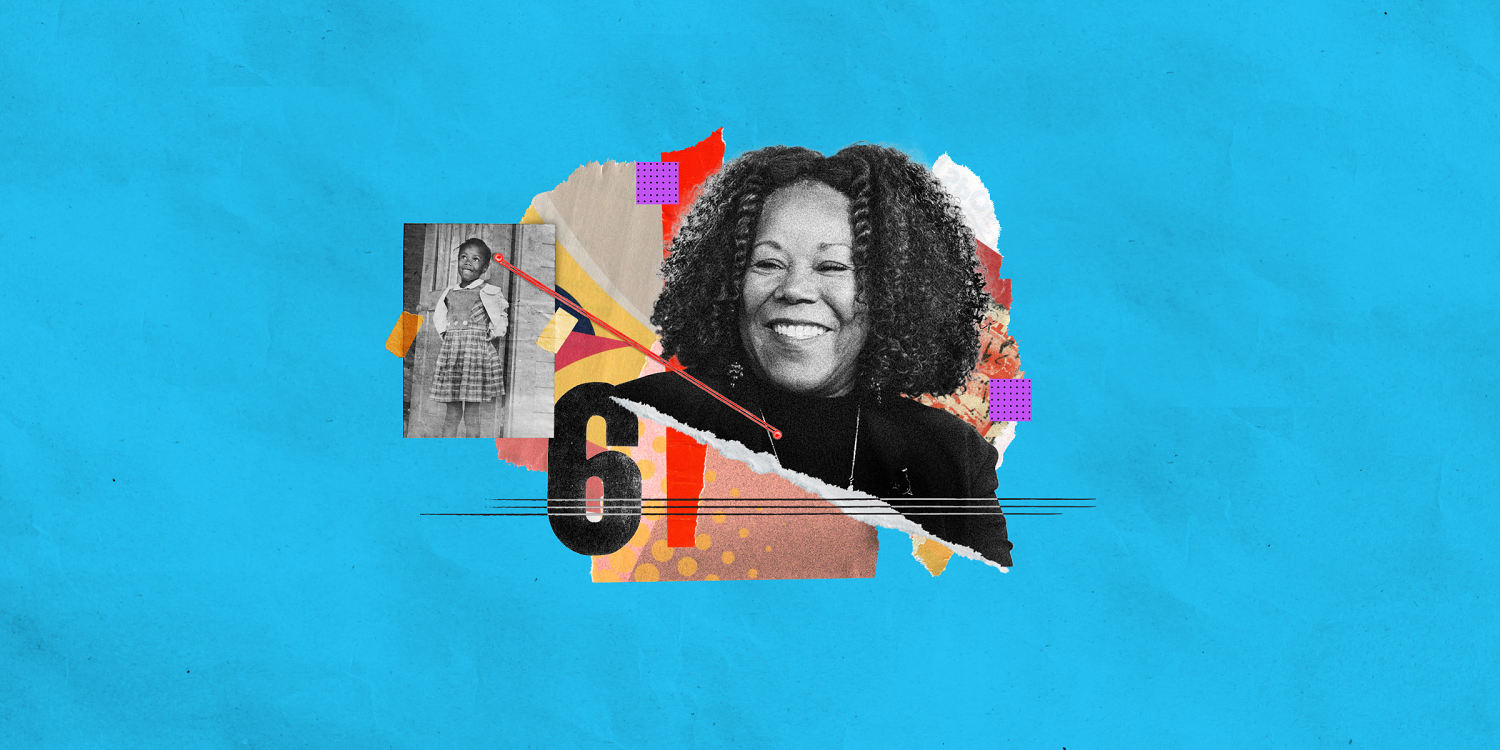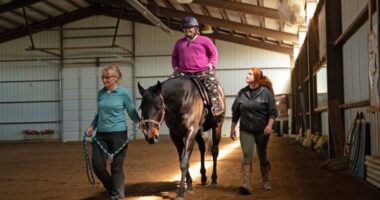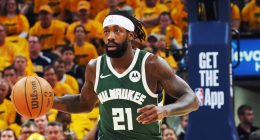Ruby Bridges says she told a little lie en route to her TODAY appearance earlier this year.
“On the plane, everybody’s standing up, got their bag and this lady says, ‘Are you Ruby Bridges?’ And I looked at her and I said, ‘No,’” she recalled.
Through a fit of laughter, Bridges said, “And then she said, ‘Oh, because you look so much like her.’ I felt so bad when I walked out of the plane. But I was like, I am not opening up this, not right here.”
“It just wasn’t the time and place,” she said. “That was going to open the door for more questions.”
That may not have been the moment for Bridges to speak about her legacy — but her sit-down interview is.
Bridges’ legacy as a civil rights activist began when she was 6 years old and helped desegregate William Frantz Elementary School in New Orleans in 1960. Bridges, escorted by federal marshals and her mother, passed picket lines as she walked into the building each day. Blocks away, Leona Tate, Gail Etienne, and Tessie Prevost desegregated the nearby McDonogh 19 Elementary School and passed similar crowds of protestors. In doing so, they were an instrumental part of integrating the school system at large, and creating an example for the rest of the country.
Their enrollment took place six years after the Supreme Court unanimously ruled the Brown v. Board of Education case in 1954, which found that segregating public school children based on their race was unconstitutional. The decisive strikedown of “separate but equal” schooling occurred months before Bridges was born.
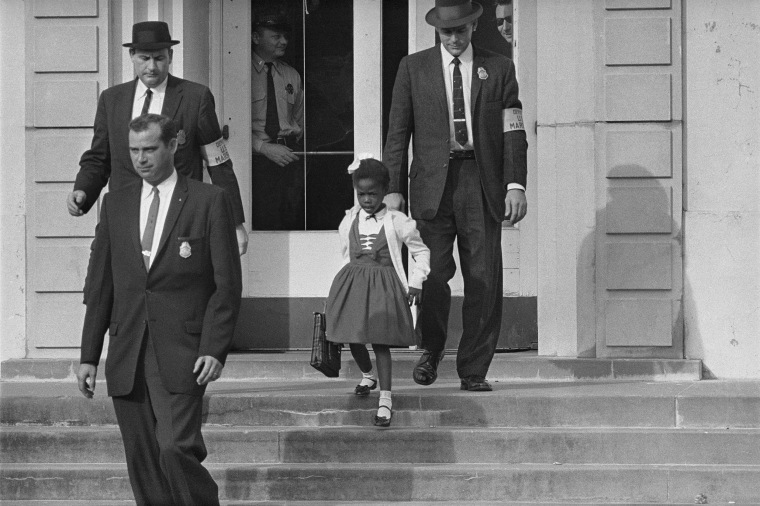
In the six decades since, students across the country have written letters to Bridges. She’s compiled some of the letters, and her responses, in her new book, “Dear Ruby: Hear Our Hearts.” She is also author of several other books that tell her story.
Part of her lingering trauma, Bridges says, is that racism is ongoing. Bridges says she sees her 6-year-old self enduring a lonely and confusing year in the children’s letters.
After walking past mobs of protesters, Bridges attended classes alone — and did so for the full year. Some white families permanently withdrew their children from the school because Bridges was a student there. The white students who did remain were kept away from her by the principal, who worked overtime to keep them apart, Bridges said. Bridges’ teacher, Barbara Henry, came from Boston specifically for the job (Bridges has previously said that some of the school’s white teachers had quit, not wanting to teach Black students). By the time her second year began, Bridges no longer needed government escorts, and was part of a classroom with other children. But her legacy remained due to media attention and the striking images of Bridges, alone.
For her historical and contemporary efforts to put Brown v. Board of Education into practice and desegregate an elementary school, and for her continued fight toward equity since then, Bridges received the Presidential Citizen Medal in 2001 from former President Bill Clinton. She is also a 2024 inductee into the National Women’s Hall of Fame.
Now 69, Bridges recalls the moment she “knew” protests outside of Frantz were against her and the memories that resurface while reading letters from students.
This interview has been edited for clarity and length.
NBC News: Originally, kids wrote to you about your story. Then, there was a turning point when they started sharing their stories with you. What do you think contributed to that shift?
Ruby Bridges: I think they related to the fact that it was a child that they saw. They put themselves in the shoes of this little girl, another child. And I think that made them comfortable enough to want to share their stories with me.
NBC News: Students share very similar stories. What does that indicate to you?
Bridges: It made me go back to thinking about what that was like for me at 6 years old — not really knowing what was going on around me. We have to understand that kids look to us as adults to protect them, keep them safe. And yet, they see all of this stuff happening around them. I sense that they are really concerned about more than we, as adults, know. A lot of times, we don’t pay enough attention to what we’re doing and the fact that they’re actually watching us, listening to us, imitating us.
NBC News: What are some of those memories that theirs letters have brought up for you?
Bridges: What I remember is the fact that no one was really listening to me. We were all going through the motions.
I was told what to do and I was a very obedient child. I know that because I’ve raised four of my own. As a matter fact, I just felt like I couldn’t ask any questions. But all of that was still going on in my head and in my heart.
Like: Why is this so different? Why is the school empty? I don’t see anybody that even looked like me. But, day after day, hoping that the kids were going to be there. They weren’t. Looking out of the window and all I saw was these very tall white men with bands on their arms, and they were walking around on the playground. And I kept thinking, what are they looking for? And nobody explained that to me. All of those thoughts, all of those questions, everything was all inside.
NBC News: And when did things start to click for you?
Bridges: Not until there was a little boy. There were a few kids whose parents tried to send their kids to school — and I say “send their kids” because you have to understand that they had to cross the same picket line that I was crossing every day and they were never protected by federal marshals. Even though they were there, the principal would take them and she would hide them so that they would never come in contact with me, never see me.
But at one point, when my teacher took me to where they were, after protesting that they were being hidden, a little boy said, “I can’t play with you. My mom said not to play with you.” And he called me the N word. That’s when I knew.
It was like, “Oh, so that’s why there’s no kids here.” It’s about me and what I look like. He made it make sense. My real encounter with racism was through him. It wasn’t really the fact that this was a white school. I thought it was just my school, right? There were no kids in there.
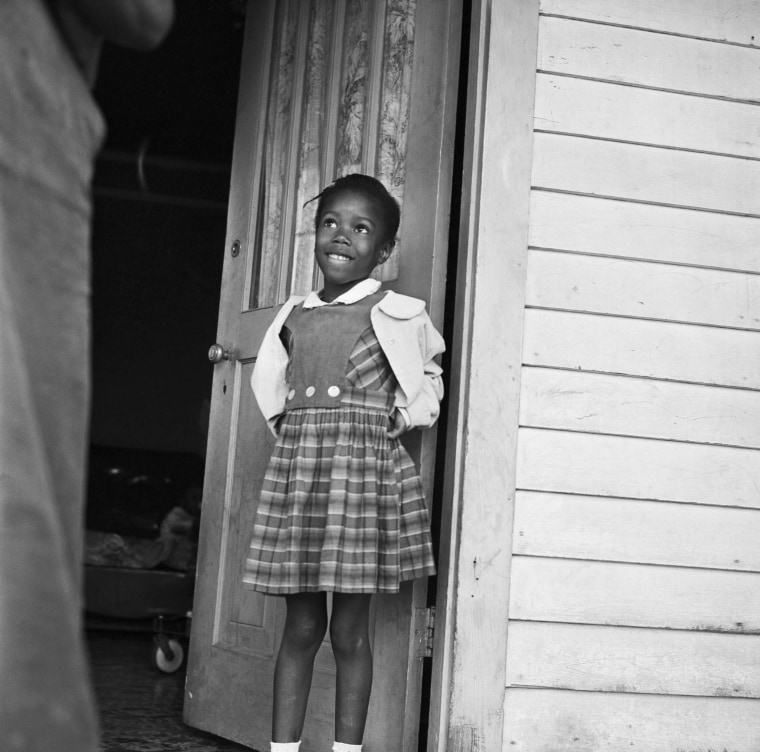
NBC News: What recommendations do you have for parents?
Bridges: I think that’s what my books are for. That’s why we have to continue to right about books being banned. It’s important. History is important. History is a roadmap for us. Good, bad or ugly. No matter how it happened or why it happened. We can still learn from it. And that’s going to take us into the future, hopefully a better future.
NBC News: How do we avoid a generation of people like that boy you mentioned, or like the people who tried to bar you from Frantz?
Bridges: I think we, as parents, have to not use our kids to spread racism. And I mean any of us. It doesn’t matter what race you are. None of our babies come into the world knowing anything about disliking the baby lying next to them. They all come into the world with a very special gift and that’s a clean heart and a fresh start in life. We as adults are responsible for what we see playing out today. Yeah, it’s us. It’s not our babies. So what I would tell parents is not to take that special gift away from them.
NBC News: What’s remarkable about your story is that you’re still here to tell it. So many other leaders were assassinated.
Bridges: I have one foot in the past and one in the present.
NBC News: I know these are heavy topics, so I want to end on a bright note.
Bridges: I always do.
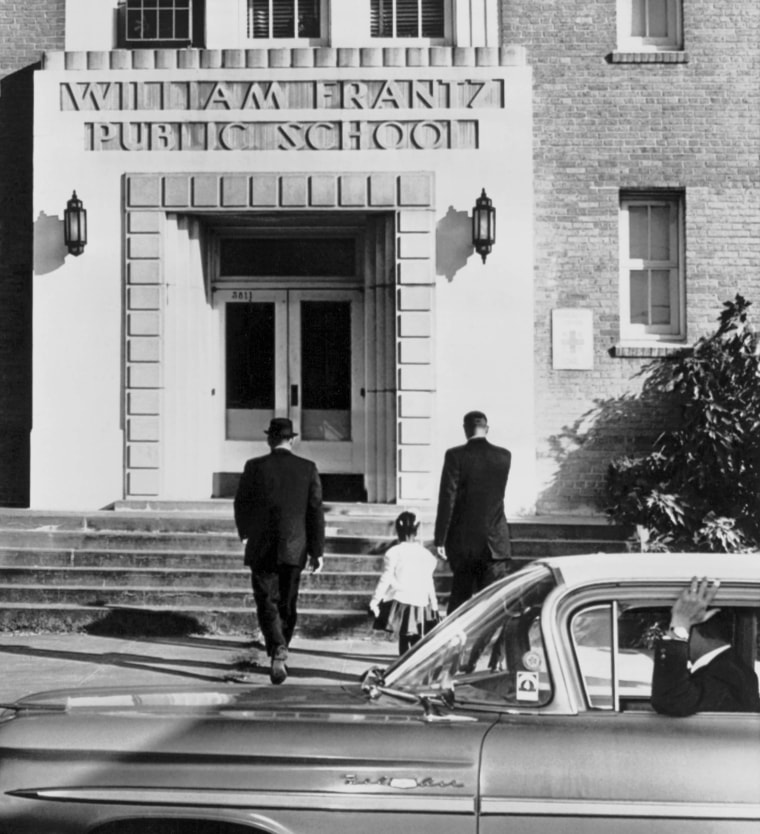
NBC News: What is something you’re excited about right now that’s brining you a lot of joy?
Bridges: Wow. I don’t know because I’m still looking for that. Joy. It is a journey. But you know it’s something that you have to consciously do. Make yourself happy. In the midst of all of it, remain hopeful. Never give that up. Because I always say, you have to think about where would we be if we were just a hopeless set of people? We have to remain hopeful. I can’t feel like things are not going to get better. I can’t.
NBC News: What keeps you hopeful?
Bridges: That things are going to get better. Yeah, they are. I think right now everything that we’re going through is to get us on Ps and Qs. Get you on your toes knowing that there is work to do and that everybody needs to be doing it.
NBC News: When they say, “Ruby Bridges desegregated a school in New Orleans, wrote multiple books, got married and had four boys, and then she …” Is there anything else left in your story that you want to do?
Bridges: Then she fought racism. I always say the 6-year-old is still inside me. She keeps saying if you explain it to them like their 6 years old, they will get it. That’s what we’re trying to do.
NBC News: Is that 6-year-old inside of you healed?
Bridges: No, that’s why she keeps pushing.
For more from NBC BLK, sign up for our weekly newsletter.
Source: | This article originally belongs to Nbcnews.com

